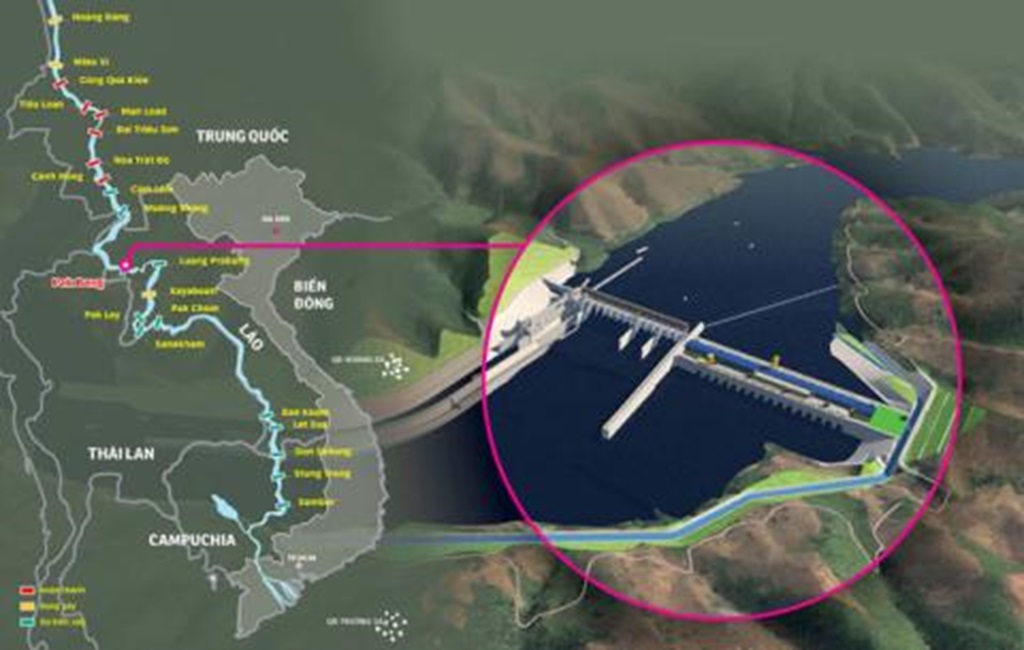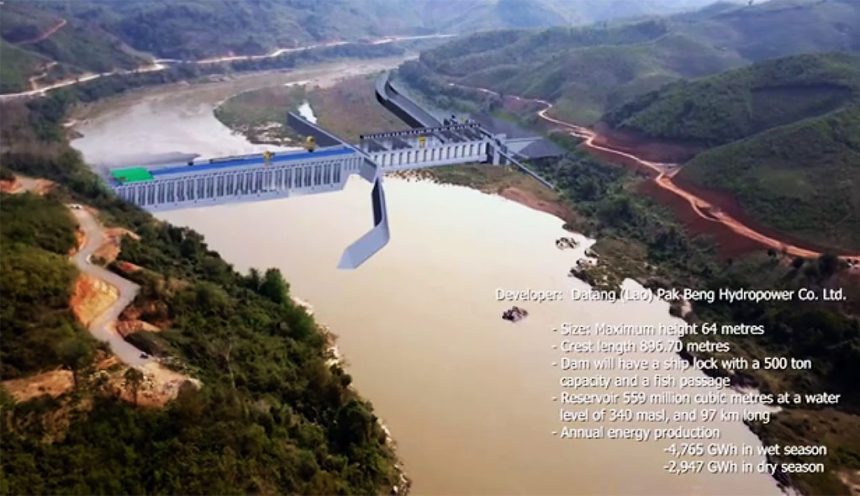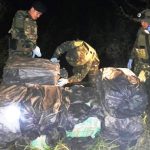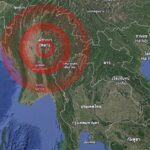Environmentalists and people from the Mekong River Basin in Chiang Rai have petitioned Prime Minister Srettha Thavisin and Energy Minister Pirapan Salirathavibhaga in an open-letter not to sign a contract to buy electricity from the Pak Beng Hydropower Dam in Laos, fearing economic and territorial losses.
The letter was submitted to Prime Minister Srettha Thavisin during of his tour of Chiang Rai Province yesterday while he was visiting Chiang Saen district on the Mekong River bank and attend a briefing on irrigation to improve water availability.
The environmentalist group is concerned about the Mekong River Commission’s acknowledgement of progress in the Pak Beng hydropower dam project, which will be erected on the Mekong River in Laos, approximately 70 kilometers from the Thai-Laos border in Chiang Rai’s Wieng Kaen District.
The Pak Beng hydroelectric dam, which can generate 920 megawatts of energy, expects to sell 95% of its output to the energy Generating Authority of Thailand (Egat).
The Mekong River Commission is studying the cross-border implications of the proposed dam, and the results will be provided to Egat before funds are acquired, according to the group.

The group is concerned about water backing up from the Pak Beng hydropower dam, which might flood homes and farms in riverfront towns in Chiang Rai Province’s Wiang Kaen, Chiang Khong, and Chiang Saen districts.
The group claims that the hydropower dam will impede fish movement in the Mekong River, causing harm to the local fishing economy. They also fear that the dam’s manipulation of water levels may jeopardize the planting and cultivation of freshwater seaweed, a valuable cash crop for farmers in Chiang Rai’s three districts.
The dam’s discharged water could overflow some islets on Thai territory in the river. This could lead to a territorial loss.
Furthermore, inhabitants along the Mekong River in Chiang Rai were not advised of the water overflow, which will have an impact on their farms and livelihoods. They were never told how far the water would rise or how much damage it would cause to their way of life and farming jobs.
The group feels that the planned purchase of electricity was unnecessary because the country has more than enough power in reserve.
We can’t call the project clean energy because it will inevitably harm the livelihoods, economic well-being, and culture of those who live along the Mekong River, the group said.
Mekong River Dams Threaten Traditional Gai Harvesting
Mekong River Dams Threaten Traditional “Gai Harvesting” in Northern Thailand

Geoff Thomas is an award winning journalist known for his sharp insights and no-nonsense reporting style. Over the years he has worked for Reuters and the Canadian Press covering everything from political scandals to human interest stories. He brings a clear and direct approach to his work.














